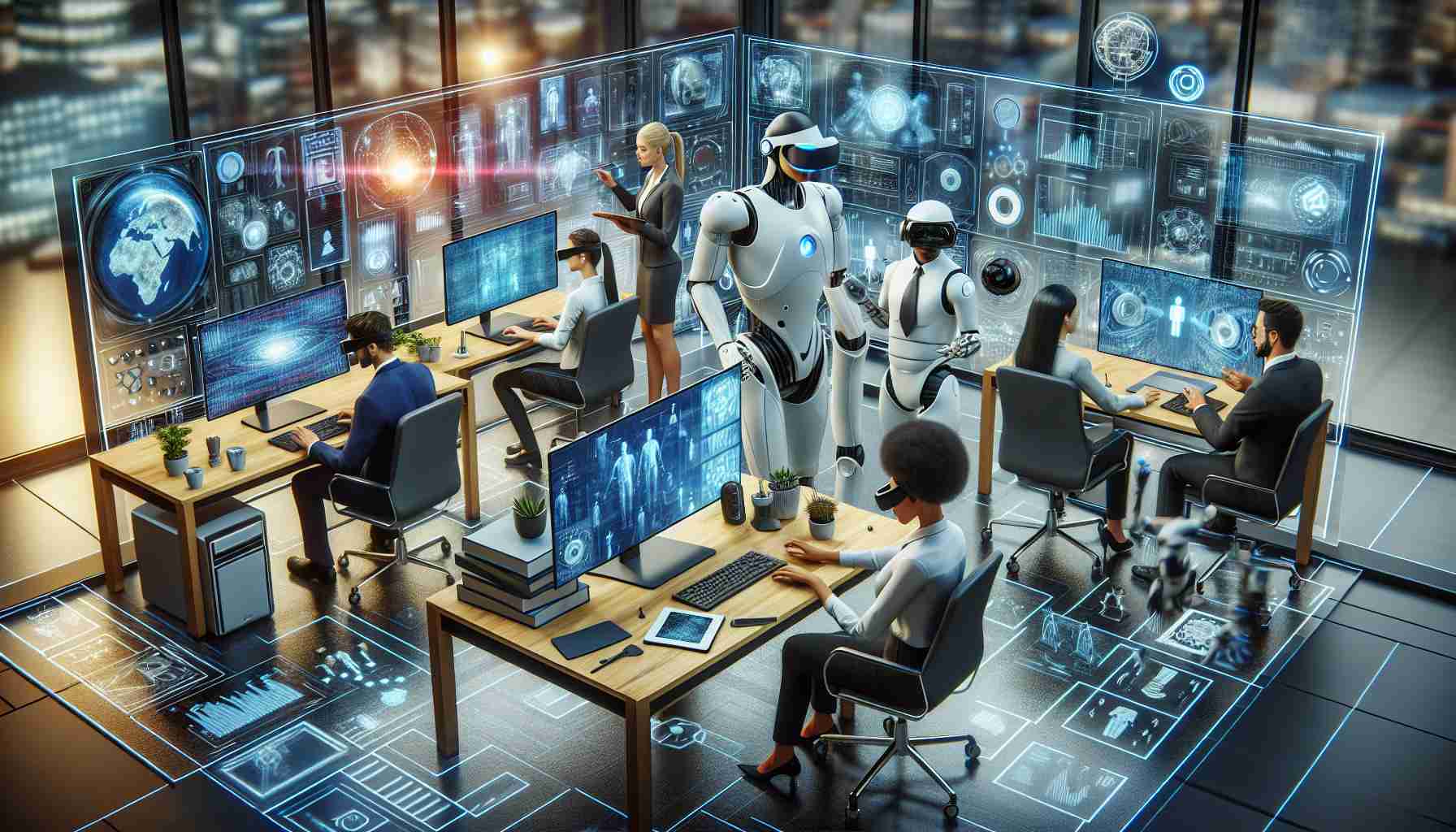New Evident Transformation in Workplaces
Advanced technology is continuing to revolutionize the traditional practices in various workplaces. While algorithms are now being utilized to determine work shifts and weekend schedules, many leaders remain apprehensive about the integration of artificial intelligence (AI) into their operations.
Online Survey Insight
A recent survey conducted by the Institute for Leadership Culture in the Digital Age (IFIDZ) in Wiesbaden involved 275 executives from diverse industries within the German-speaking regions.
Leaders’ Concerns Regarding AI Implementation
Although 84.5% of the surveyed executives acknowledge the significance of professional AI implementation for business success, only 22.5% have actively incorporated AI tools like ChatGPT. Furthermore, 72.8% expressed fears that excessive reliance on AI could undermine human judgment within their organizations.
Barriers to Increased AI Adoption
The reluctance among leaders to embrace AI more extensively is influenced by concerns such as data privacy issues prevalent in their organizations. Additionally, a notable 20.3% of executives anticipate potential job losses in the medium term.
Examination of the Shift in Leadership Dynamics
As emphasized during in-depth interviews, the heightened integration of AI technologies inevitably impacts the leadership landscape, particularly with the potential decrease in the workforce necessitating fewer managerial roles.
Real-life Demonstrations of AI Consequences
Recent events in the corporate world, like the decision by financial service provider Klarna to freeze new hires due to successful AI utilization, underscore the potential for substantial workforce reductions through AI efficiency gains.
Pitfalls of Blind Enthusiasm towards AI
Despite AI achievements like ChatGPT outperforming humans in various tests, companies are cautioned against distractions fueled by euphoria and are advised to focus on the strategic and deliberate use of technology.
Redefining Work Environment with Algorithmic Management
The emergence of algorithmic management practices is reshaping numerous professions, from coordinating food delivery services through apps to monitoring performance benchmarks for customer-facing roles, exemplifying the evolving landscape of workplace dynamics.
Challenges for Freelancers
The increased utilization of generative AI technologies is leading to decreased opportunities for freelancers in fields such as coding and app development, highlighting the industry-wide impact of AI advancements.
Impact on Workplace Morale
The pervasive technological advancements are affecting the overall well-being of employees, as demonstrated by declining levels of job satisfaction and deteriorating work-life balance among German workers, necessitating a reassessment of workplace policies and practices.
Exploring Further Dimensions of Technology’s Influence on Workplace Dynamics
In delving deeper into the transformative effects of advanced technology on modern work environments, it is essential to consider additional facets that shed light on the complex interplay between innovation and organizational dynamics. Here are some key questions and insights that broaden our understanding of this evolving landscape.
What are the Lesser-Known Implications of Increased AI Integration?
While much attention is rightfully placed on the benefits of AI in streamlining processes and enhancing productivity, there are subtle yet crucial repercussions to consider. One such impact is the potential erosion of interpersonal skills among employees who increasingly interact with AI systems, potentially leading to diminished teamwork and communication effectiveness in the long run.
Are There Hidden Challenges in Implementing Advanced Technologies?
Beyond the technical considerations of adopting AI tools, organizations often grapple with intricate ethical dilemmas and regulatory hurdles. Ensuring the responsible use of AI, safeguarding data privacy, and addressing algorithmic biases present formidable challenges that demand thoughtful solutions to navigate successfully in the digital era.
Unpacking the Trade-offs of Technology in the Workplace
While the advantages of technology are manifold, ranging from improved efficiency to innovative solutions, there are trade-offs that merit attention. One significant downside is the risk of job displacement as automation increasingly takes over routine tasks, necessitating proactive reskilling initiatives and strategic workforce planning to mitigate potential disruptions.
The Balancing Act of Workforce Engagement in a Tech-Driven Environment
Maintaining high levels of employee engagement and motivation poses a unique challenge in technologically advanced workplaces. The allure of automation and AI-enabled conveniences must be complemented by initiatives that foster a positive work culture, promote continuous learning, and empower employees to adapt to evolving roles in a digitized landscape.
Advantages and Disadvantages of Embracing AI and Automation
On one hand, embracing AI and automation can lead to enhanced operational efficiency, cost savings, and innovation acceleration. Conversely, concerns around job security, skill relevance, and the need for human oversight in critical decision-making processes underscore the potential pitfalls of over-reliance on technological solutions.
In navigating the complexities of integrating advanced technology into workplace dynamics, it is imperative for organizations to assess the holistic impact on their employees, culture, and long-term sustainability. By addressing the nuanced challenges and maximizing the benefits of technological advancements thoughtfully, businesses can chart a strategic path towards a harmonious coexistence of human ingenuity and digital innovation.
Suggested related link: Forbes

